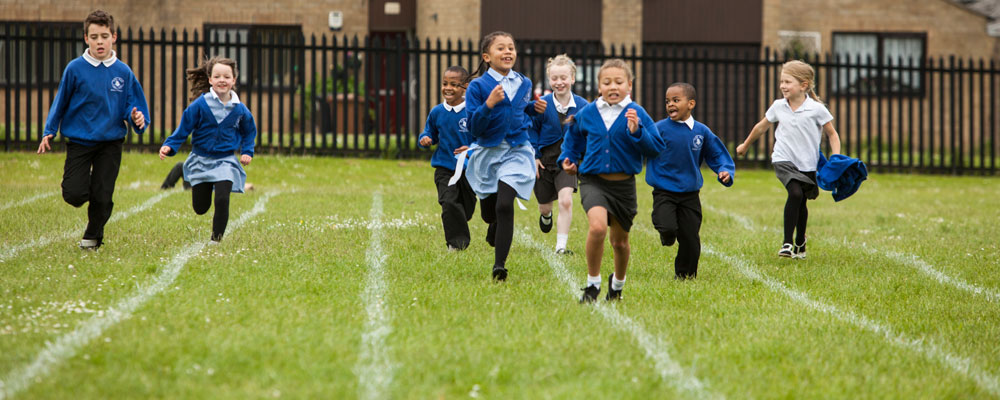The results are in…. our latest data from our impact evidence survey has been launched and it’s brought a smile to our faces. Compared to our results in 2015, school outdoor spaces have boosted behaviour, attitudes and physical activity levels.

This year 53% of the schools we surveyed reported significantly better behaviour since installing their new playground and 34% noted a significant improvement in attitudes to learning. At a time where inactivity and child obesity has been prevalent in the news, it’s fantastic to hear that 51% of our schools said that improving their facilities has increased physical activity levels and 50% said that their play facilities are being used for at least one hour a day.
Alongside the brilliant news that more children are using our play facilities to improve their physical health, it’s important to focus on the benefits for mental health too. World Health Day takes place this week, on the 7th April, and the theme this year is depression. Improving children’s happiness and wellbeing has always been one of our top priorities and we’ve been keen promoters of the benefits of play from head to toe. 48% of schools surveyed noted an improvement in happiness since installing new play facilities and 37% saw an improvement in well being.
We’re certainly not the first people to say that play can boost happiness, the stats have been there for years. A classic piece of research from the Children’s Play Policy Forum found that play improved children’s physical and mental health, as well as their emotional well-being. The report showed that school playgrounds were one of the best ways of increasing children’s levels of physical activity. The addition of play equipment was found to help link outdoor play to a range of improvements in academic skills, attitudes, behaviours and social skills.
A literature review published by Play England further supports this, suggesting that children perceived spending time with their friends and family, as well as having fun and engaging things to do, as fundamental to their well-being. It argues that a child’s definition of ‘happiness’ is strongly associated with ‘doing what you want when you want to’, ‘getting what you want’, or ‘something unexpected, out of the ordinary happening’. These are all concepts that can be linked to having the accessibility to free-flow, imaginative and unlimited play.
World Health Day is a fantastic opportunity to consider how your children can gain both the mental and physical benefits of play. It’s crucial to support children’s happiness and well-being in school and to find new and unique ways to ensure this happens.
“It is a happy talent to know how to play” - Ralph Waldo Emerson
Find out how you can get the most from your playground, contact us on sales@playforce.co.uk.